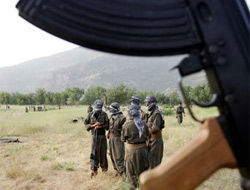By Spengler
Political Islam returned to the world stage with Ruhollah Khomeini's 1979 revolution in Iran, which became the most aggressive patron of Muslim radicals outside its borders, including Hamas in the Palestinian territories and Hezbollah in Lebanon.
Until very recently, an oil-price windfall gave the Iranian state ample resources to pursue its agenda at home and abroad. How, then, should we explain an eruption of social pathologies in Iran such as drug addiction and prostitution, on a scale much worse than anything observed in the West? Contrary to conventional wisdom, it appears that Islamic theocracy promotes rather than represses social decay.
Iran is dying. The collapse of Iran's birth rate during the past 20 years is the fastest recorded in any country, ever. Demographers have sought in vain to explain Iran's population implosion through family planning policies, or through social factors such as the rise of female literacy.
But quantifiable factors do not explain the sudden collapse of fertility. It seems that a spiritual decay has overcome Iran, despite best efforts of a totalitarian theocracy. Popular morale has deteriorated much faster than in the "decadent" West against which the Khomeini revolution was directed.
"Iran is dying for a fight," I wrote in 2007 (Please see Why Iran is dying for a fight, November 13, 2007.) in the literal sense that its decline is so visible that some of its leaders think that they have nothing to lose.
Their efforts to isolate Iran from the cultural degradation of the American "great Satan" have produced social pathologies worse than those in any Western country. With oil at barely one-fifth of its 2008 peak price, they will run out of money some time in late 2009 or early 2010. Game theory would predict that Iran's leaders will gamble on a strategic long shot. That is not a comforting thought for Iran's neighbors.
Two indicators of Iranian morale are worth citing.
First, prostitution has become a career of choice among educated Iranian women. On February 3, the Austrian daily Der Standard published the results of two investigations conducted by the Tehran police, suppressed by the Iranian media. [1]
"More than 90% of Tehran's prostitutes have passed the university entrance exam, according to the results of one study, and more than 30% of them are registered at a university or studying," reports Der Standard. "The study was assigned to the Tehran Police Department and the Ministry of Health, and when the results were tabulated in early January no local newspaper dared to so much as mention them."
The Austrian newspaper added, "Eighty percent of the Tehran sex workers maintained that they pursue this career voluntarily and temporarily. The educated ones are waiting for better jobs. Those with university qualifications intend to study later, and the ones who already are registered at university mention the high tuition [fees] as their motive for prostitution ... they are content with their occupation and do not consider it a sin according to Islamic law."
There is an extensive trade in poor Iranian women who are trafficked to the Gulf states in huge numbers, as well as to Europe and Japan. "A nation is never really beaten until it sells its women," I wrote in a 2006 study of Iranian prostitution, Jihads and whores.
Prostitution as a response to poverty and abuse is one thing, but the results of this new study reflect something quite different. The educated women of Tehran choose prostitution in pursuit of upward mobility, as a way of sharing in the oil-based potlatch that made Tehran the world's hottest real estate market during 2006 and 2007.
A country is beaten when it sells its women, but it is damned when its women sell themselves. The popular image of the Iranian sex trade portrays tearful teenagers abused and cast out by impoverished parents. Such victims doubtless abound, but the majority of Tehran's prostitutes are educated women seeking affluence.
Only in the former Soviet Union after the collapse of communism in 1990 did educated women choose prostitution on a comparable scale, but under very different circumstances. Russians went hungry during the early 1990s as the Soviet economy dissolved and the currency collapsed. Today's Iranians suffer from shortages, but the data suggest that Tehran's prostitutes are not so much pushed into the trade by poverty as pulled into it by wealth.
A year ago I observed that prices for Tehran luxury apartments exceeded those in Paris, as Iran's kleptocracy distributed the oil windfall to tens of thousands of hangers-on of the revolution. $35 billion went missing from state oil funds, opposition newspapers charged at the time. Corruption evidently has made whores of Tehran's educated women. (Please see Worst of times for Iran, June 24, 2008.)
Second, according to a recent report from the US Council on Foreign Relations, "Iran serves as the major transport hub for opiates produced by [Afghanistan], and the UN Office of Drugs and Crime estimates that Iran has as many as 1.7 million opiate addicts." That is, 5% of Iran's adult, non-elderly population of 35 million is addicted to opiates. That is an astonishing number, unseen since the peak of Chinese addiction during the 19th century. The closest American equivalent (from the 2003 National Survey on Drug Use and Health) found that 119,000 Americans reported using heroin within the prior month, or less than one-tenth of 1% of the non-elderly adult population.
Nineteenth-century China had comparable rates of opium addiction, after the British won two wars for the right to push the drug down China's throat. Post-communist Russia had comparable rates of prostitution, when people actually went hungry. Iran's startling rates of opium addiction and prostitution reflect popular demoralization, the implosion of an ancient culture in its encounter with the modern world. These pathologies arose not from poverty but wealth, or rather a sudden concentration of wealth in the hands of the political class. No other country in modern history has evinced this kind of demoralization.
For the majority of young Iranians, there is no way up, only a way out; 36% of Iran's youth aged 15 to 29 years want to emigrate, according to yet another unpublicized Iranian study, this time by the country's Education Ministry, Der Standard adds. Only 32% find the existing social norms acceptable, while 63% complain about unemployment, the social order or lack of money.
As I reported in the cited essay, the potlatch for the political class is balanced by widespread shortages for ordinary Iranians. This winter, widespread natural gas shortages left tens of thousands of households without heat.
The declining morale of the Iranian population helps make sense of its galloping demographic decline. Academic demographers have tried to explain collapsing fertility as a function of rising female literacy. The problem is that the Iranian regime lies about literacy data, and has admitted as much recently.
In a recent paper entitled "Education and the World's Most Raid Fertility Decline in Iran [2], American and Iranian demographers observe:
A first analysis of the Iran 2006 census results shows a sensationally low fertility level of 1.9 for the whole country and only 1.5 for the Tehran area (which has about 8 million people) ... A decline in the TFR [total fertility rate] of more than 5.0 in roughly two decades is a world record in fertility decline. This is even more surprising to many observers when one considers that it happened in one of the most Islamic societies. It forces the analyst to reconsider many of the usual stereotypes about religious fertility differentials.The census points to a continued fall in fertility, even from today's extremely low levels, the paper maintains.
Most remarkable is the collapse of rural fertility in tandem with urban fertility, the paper adds:
The similarity of the transition in both urban and rural areas is one the main features of the fertility transition in Iran. There was a considerable gap between the fertility in rural and urban areas, but the TFR in both rural and urban areas continued to decline by the mid-1990s, and the gap has narrowed substantially. In 1980, the TFR in rural areas was 8.4 while that of urban areas was 5.6. In other words, there was a gap of 2.8 children between rural and urban areas. In 2006, the TFR in rural and urban areas was 2.1 and 1.8, respectively (a difference of only 0.3 children).What the professors hoped to demonstrate is that as rural literacy levels in Iran caught up with urban literacy levels, the corresponding urban and rural fertility rates also converged. That is a perfectly reasonable conjecture whose only flaw is that the data on which it is founded were faked by the Iranian regime.
The Iranian government's official data claim literacy percentage levels in the high 90s for urban women and in the high 80s for rural women. That cannot be true, for Iran's Literacy Movement Organization admitted last year (according to an Agence-France Presse report of May 8, 2008) that 9,450,000 Iranians are illiterate of a population of 71 million (or an adult population of about 52 million). This suggests far higher rates of illiteracy than in the official data.
A better explanation of Iran's population implosion is that the country has undergone an existential crisis comparable to encounters of Amazon or Inuit tribes with modernity. Traditional society demands submission to the collective. Once the external constraints are removed, its members can shift from the most extreme forms of modesty to the other extreme of sexual license. Khomeini's revolution attempted to retard the disintegration of Persian society, but it appears to have accelerated the process.
Modernity implies choice, and the efforts of the Iranian mullahs to prolong the strictures of traditional society appear to have backfired. The cause of Iran's collapsing fertility is not literacy as such, but extreme pessimism about the future and an endemic materialism that leads educated Iranian women to turn their own sexuality into a salable commodity.
Theocracy subjects religion to a political test; it is hard for Iranians to repudiate the regime and remain pious, for religious piety and support for political Islam are inseparable, as a recent academic study documented from survey data [3].
As in the decline of communism, what follows on the breakdown of a state ideology is likely to be nihilism. Iran is a dying country, and it is very difficult to have a rational dialogue with a nation all of whose available choices terminate in oblivion.
[1] Der Standard, Die Wahrheit hinter der islamischen Fassade
.
[2] Education and the World's Most Raid Fertility Decline in Iran
.
[3] Religiosity and Islamic Rule in Iran, by Gunes Murat Tezcur and Tagh Azadarmaki.
(Copyright 2009 Asia Times Online (Holdings) Ltd. All rights reserved. Please contact us about sales, syndication and republishing.)



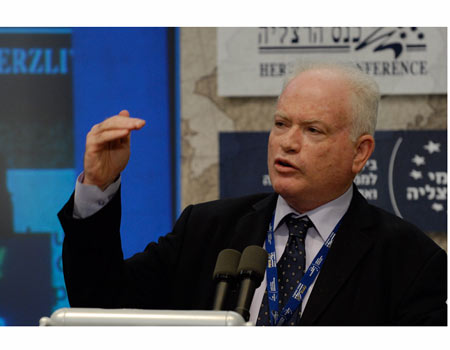
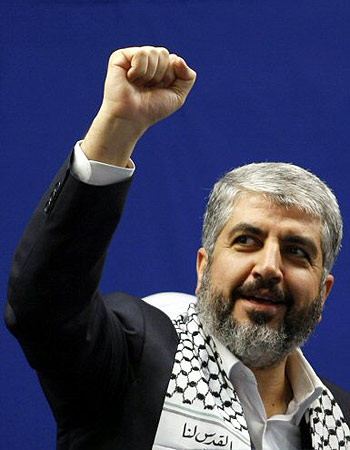
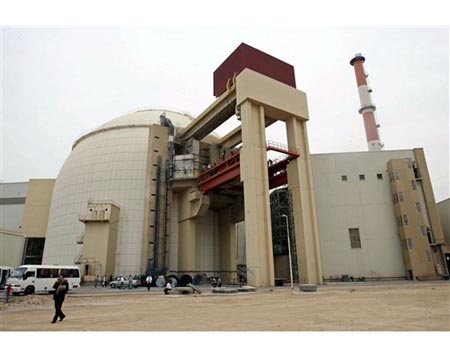


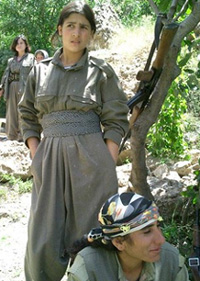
.jpg)








